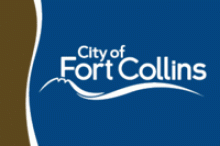Transcript: Community Broadband Bits Episode 272
This is the transcript for Episode 272 of the Community Broadband Bits Podcast. Christopher Mitchell sits down with three local leaders in Lyndon Township, Michigan, to discuss how the community decided to pursue a Fiber-to-the-Home network. Listen to this episode here.
Gary Munce: We had a voter turnout of 43 percent of the Township residents. That is by far and away the largest turnout for any August election in the history of voting in Lyndon township.
Lisa Gonzalez: This is episode 272 of the Community Broadband Bits podcast from the Institute for Local Self-Reliance. I'm Lisa Gonzalez. In August, the small community of Lyndon Township, Michigan voted to raise property taxes to fund publicly-owned fiber optic infrastructure. Marc Keezer, Gary Munce, and Ben Fineman from Lyndon joined Christopher to talk about the vote, their proposed network, and how they spread the word about improving connectivity in their rural community. Our guests also describe the work of Michigan Broadband Cooperative that's working on the Lyndon project. Now, here's Marc, Gary, Ben, and Christopher.
Chris Mitchell: Welcome to another edition of the Community Broadband Bits podcasts. I'm Chris Mitchell, and today I'm speaking with a cohort of folks from Lyndon Township in Michigan. I'll start with introducing Marc Keezer, Lyndon Township Supervisor. Welcome to the show.
Marc Keezer: Thank you, Chris.
Chris Mitchell: We also have Gary Munce who led the Lyndon Broadband initiative ballot campaign and is also a board member of the Michigan Broadband Cooperative. Welcome to the show.
Gary Munce: Thanks, Chris.
Chris Mitchell: And our third guest is Ben Fineman who volunteers as president of the Michigan Broadband Cooperative and is someone that I know has been working on this for a long time. Welcome to the show.
Ben Fineman: Thank you very much for having us, Chris.



